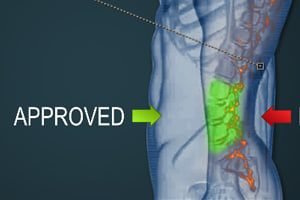
Cauda Equina Syndrome, sometimes called “Horse Tail” Syndrome, is a possible side effect associated with Medtronic Infuse® when used in spinal fusion surgery. About Medtronic Infuse® Medtronic INFUSE® is a synthetic form of recombinant human Bone Morphogenetic Protein (rhBMP-2 or BMP2) approved for use in a particular type of spinal surgery and some dental procedures. […]
 Cauda Equina Syndrome, sometimes called “Horse Tail” Syndrome, is a possible side effect associated with Medtronic Infuse® when used in spinal fusion surgery.
Cauda Equina Syndrome, sometimes called “Horse Tail” Syndrome, is a possible side effect associated with Medtronic Infuse® when used in spinal fusion surgery.
About Medtronic Infuse®
Medtronic INFUSE® is a synthetic form of recombinant human Bone Morphogenetic Protein (rhBMP-2 or BMP2) approved for use in a particular type of spinal surgery and some dental procedures. BMP-2 is, more and more, being used off-label. For instance, rather than performing the surgery from an “anterior” (front approach), BMP-2 is being utilized in a “posterior” (rear approach) in the cervical area of the spine, as well as for multiple levels of the spine. Because the BMP-2 powder is supposed to be mixed with a certain amount of water for a certain amount of time, the lack of precision in both time and amount, may be leading to injuries.
Data provided to the U.S. Food & Drug Administration (FDA) revealed that at least half of all patients treated with INFUSE® suffered complications including:
Many injuries have occurred when BMP-2 was used in an unapproved, so-called “off-label,” procedures, which accounts for some 85 percent of all procedures. In fact, Medicare is considering stopping coverage of BMP-2.
Medtronic Infuse® and Cauda Equina Syndrome
Evidence is emerging that doctors may be utilizing too much water or too much BMP-2 during off-label surgical spine procedures. The bone growth product, which is a sealant, can potentially drip onto the spinal cord or spinal nerves, leading to serious, severe injuries, including Cauda Equina Syndrome.
Cauda Equina Syndrome is caused by a significant narrowing of the spinal canal, in which nerve roots below the spinal cord level become severely compressed or inflamed. Although a number of causes of Cauda Equina Syndrome are known, the use of Medtronic INFUSE® in off-label spinal surgery has been associated with this devastating injury. Inflammation typical with Cauda Equina Syndrome is believed to be associated with Medtronic INFUSE® procedures, likely the result of the product coming into contact with nerves and other areas of the body.
Damage to the nerve roots due to Cauda Equina Syndrome following surgery with Medtronic INFUSE® can lead to: Pain, altered reflexes, and decreased strength and/or sensation. Cauda equina syndrome is considered a surgical emergency and, if left untreated, can lead to permanent loss of bowel and bladder control and leg paralysis.
Medtronic INFUSE® Lawsuits
Over the last several years, Medtronic has been embroiled in controversies that have shed doubt on the safety of INFUSE® and the company’s marketing of the product. Among other things, an article published in The Spine Journal last year found that 13 Medtronic-sponsored clinical trials of INFUSE® failed to report serious complications in patients treated with the product. The study also raised concerns about the financial ties between Medtronic and the researchers who conducted the 13 studies. A U.S. Senate Committee launched an investigation of Medtronic’s financial ties to Infuse researchers and confirmed that the firm paid hundreds of millions of dollars to influence clinical data on its INFUSE® bone growth product.
In 2011, another analysis found that the high doses of INFUSE® often needed in off-label procedures could be associated with an increased risk of cancer. In March, Medtronic agreed to pay $85 million to resolve a federal lawsuit brought by shareholders that alleged the company’s officers and executives made false and misleading public statements about INFUSE®, which then artificially inflated the company’s stock price.
There have been widespread reports of INFUSE® bone growth injuries and many victims have begun to take legal action against Medtronic as they continue to suffer from INFUSE® side effects.


